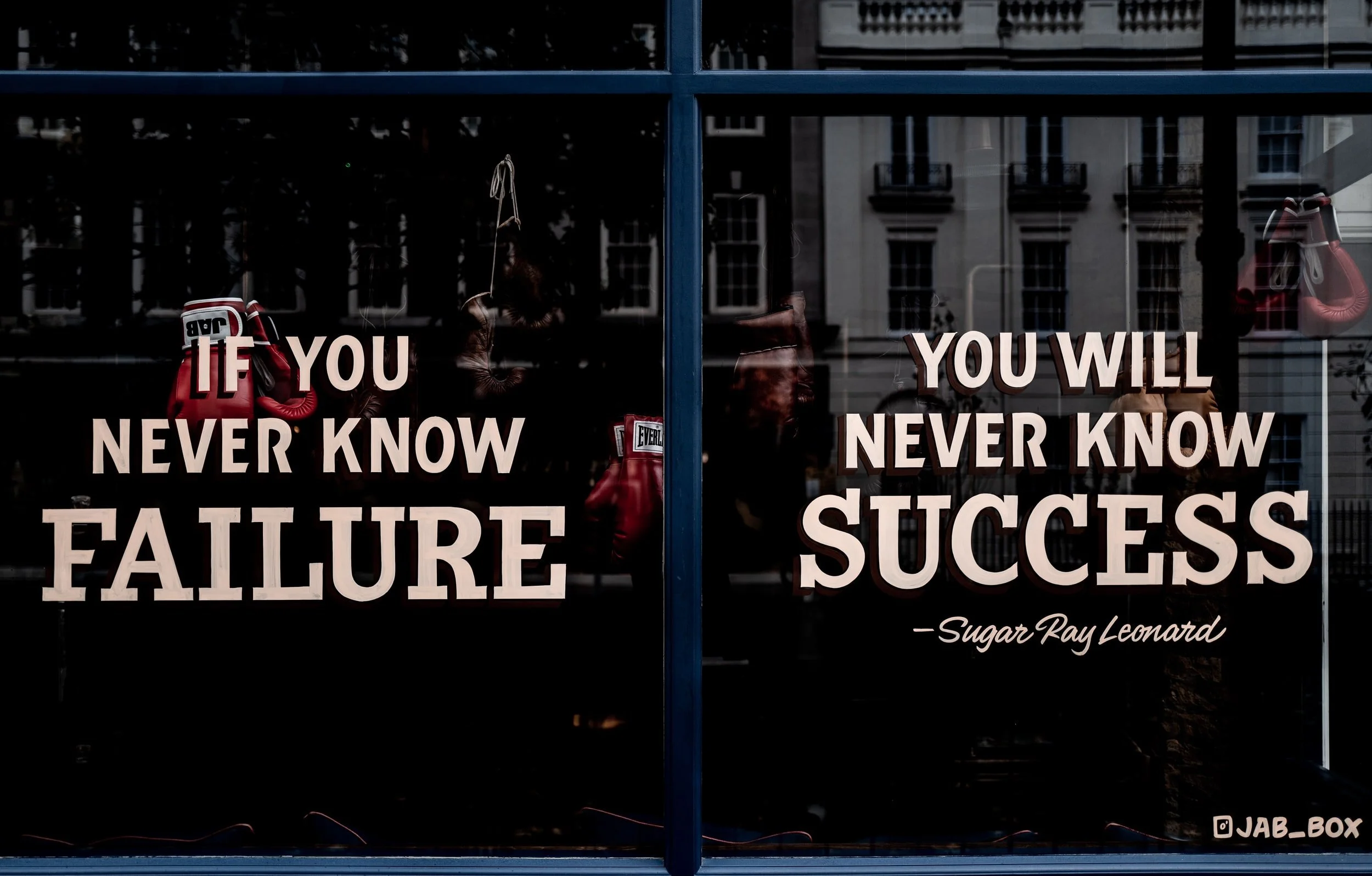Let’s Talk About Failure
Eighty-three percent of what I've started in my life has ended in failure. Although 83% is a guesstimate, I believe I'm close. So let's say most of what I've started has ended in failure.
Take a moment to estimate your failure rate? Really think about it.
Is your estimation on the low end?
Is it exceptionally high?
Did you fail to come up with a number?
Here's the thing. Failure is a paradox. The more you fail, the more successful you tend to be — unless you give up.
For example, you failed hundreds of times to walk before you mastered the coordination to stride across the room. But that's sort of a lie. You didn't fail. You learned a new way not to walk each time you fell to the floor.
Now, come back to the present and answer these two questions.
When you fail, do you believe you are a failure?
Or do you view the situation as a lesson on what not to do?
If you relate more to question #1, you are reinforcing your belief that you are a failure each time something doesn't go your way. When you think or say out loud, "I'm a failure," you are making an identity statement — a statement that defines who you are as a human. This is demoralizing.
If you relate to question #2, the failure does not affect your identity. You've simply found another way not to do it. So it's time to try something else — a time to get excited because you get to try another way to succeed. This is called learning.
I would like to share a very personal example from my life.
I've been married three times and failed at 83% of them.
Marriage #1 lasted over a decade.
I proposed to the first girl who expressed interest in me at university.
One evening, after ten years of marriage, I was sitting on the sofa watching television. My wife at the time walked through the living room and asked, "Is everything okay?" I imagine this was when I unknowingly reached the point of enough is enough.
I looked up and answered, "I don't want to be married to you any longer." And the following weekend, I found a condo and moved into it. It was a nightmare divorce, but it was the beginning of finding me.
I started by analyzing what I had done wrong and determined that I married the first woman to come along without waiting on the right one. I learned patience.
Marriage #2 was a run of just over four years.
She was outgoing, fun, wild, and unpredictable. And she let me know in no uncertain terms that she wanted to marry me. We had some great times and unique experiences — until we didn't. One afternoon, the unpredictable side popped out and said, "I'm ready to get divorced."
After analyzing how this one went south, I realized wild unpredictability wasn't always a good trait. I learned to be more aware of what was going on in my relationships.
Marriage #3 is still in progress after nine years.
This one is flooded with failures on both sides, but I'm learning more than I ever have. I've learned what I need and don't need in a relationship, what I'm willing and not willing to compromise on, and how to communicate effectively.
Analyzing all my marriages, I realize I'm drawn to humans needing help or fixing. I've learned that it's not my responsibility to fix someone. In fact, it's an absurd notion to hold.
Because of failing multiple times, I am becoming a better human being.
I urge you to fail endlessly, learn from each experience, and grow.
